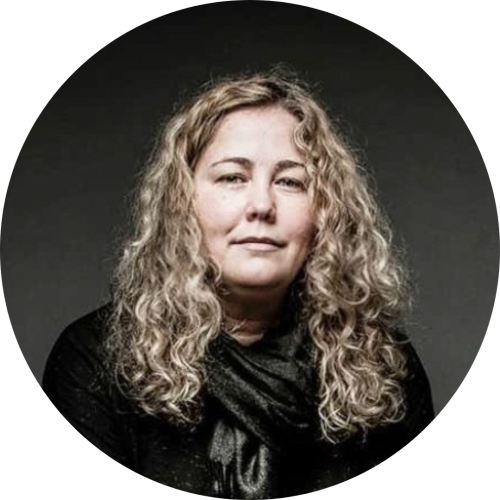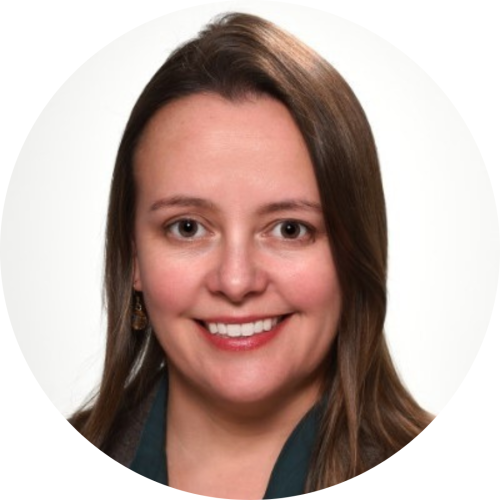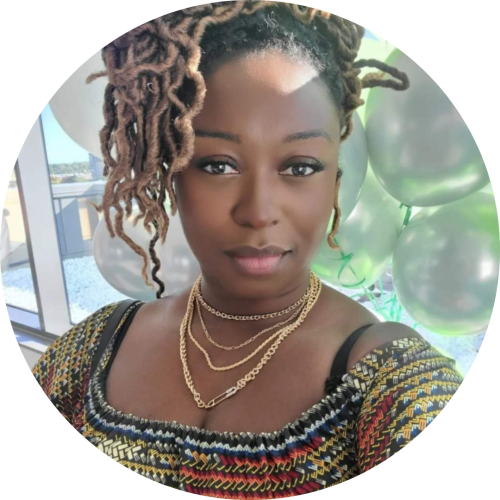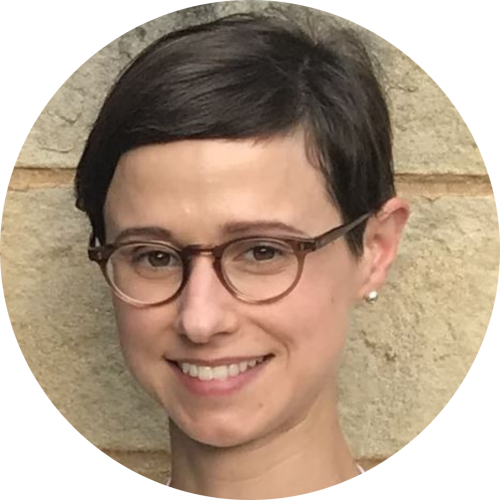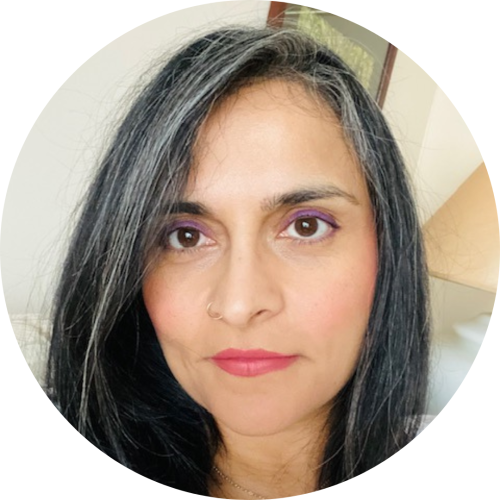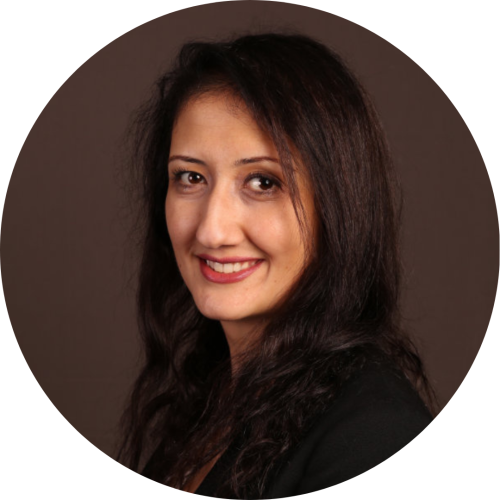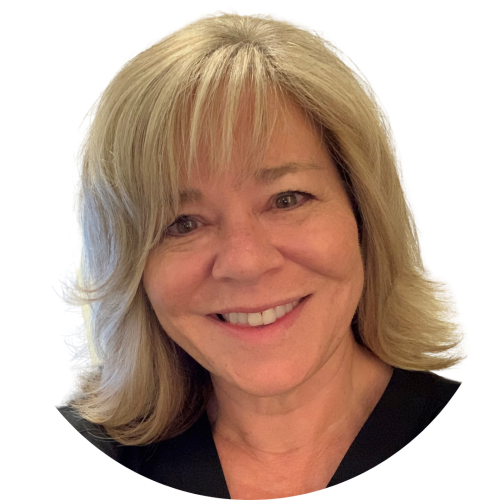
Learn more about these emerging climate leaders and their innovative projects.

Tina Safaei is the co-founder and CEO of Pahk Solutions, a platform that helps individuals reduce the environmental impact of their lifestyle, and enables communities to manage their carbon footprint. Tina has more than 5 years of experience in venture capital investing, where she worked with startups and organizations such as Sidewalk Labs to develop solutions and thought leadership around smart cities and environmental sustainability. Tina holds a Ph.D. degree from the University of Toronto in electrical engineering focused on renewable energies and the upgrade of CO2.
There is a growing number of communities committing to net-zero emissions. Individuals have a sizeable impact on the overall emissions of municipalities and organizations, yet community leaders fail to effectively engage them in sustainability. Pahk Solutions leverages technological advancements in the fields of machine learning and internet of things to promote sustainability among individuals and help communities quantify and reduce their aggregate carbon footprint.
My academic and professional background familiarized me with different applications of science and technology in combating the climate change. It also helped me realize how a complex challenge such as global warming can only be solved through multi-faceted climate actions on many different levels. Ironically, as I got deeper into developing and studying large-scale, industrial-level climate technologies, I became more intrigued about the role of individuals and their collective impact on the environment. This curiosity initially grew into a dedication to understanding my personal environmental impact, before eventually leading me to explore ways to empower communities to collectively manage their environmental footprint. The outcome of this quest shaped the genesis of Pahk Solutions.
Climate change is often portrayed by a dystopian image at a magnitude and time scale that leaves us feel powerless and dissociated from positively impacting it. At least, that is how I used to feel. That is why I am motivated to change the narrative and empower individuals to play their part in the fight against climate change. I believe in the collective impact of smaller actions and would like to show people, in actual numbers, how achievable lifestyle adjustments can lead to significant changes. I am committed to helping create communities of change.
See more at the Pakh Solutions website. Follow Pakh Solutions and its latest updates on LinkedIn, Instagram, Facebook and X (formerly Twitter).
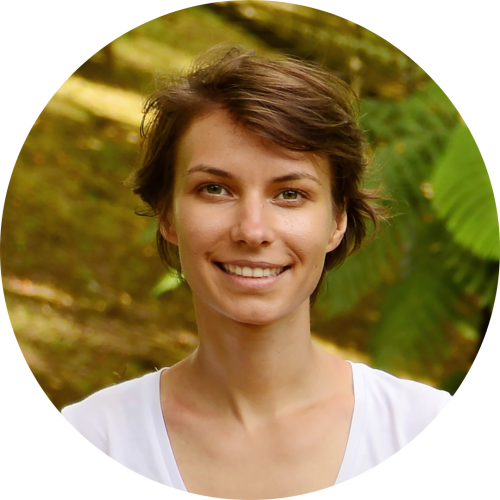
My name is Ana and I enjoy connecting with people and creating fun memories with those around me. Six years ago, I fell in love with exploring how communities can become more resilient and collaborative while addressing environmental concerns that many neighbours shared. Dipping into my knowledge of architecture, biology and leadership building, I created a grass roots environmental group that uses the joy of art and science to bring people together and get things done.
Splash on Earth makes environmental learning fun and accessible to everyone. It is a community building event where participants paint their environmental goals on the asphalt using an eco-paint that is made from food waste. To obtain certain paint colours, participants play games that help connect the dots between our actions and food waste, biodiversity loss and climate change. At the end of the event, participants win cash prizes for their creativity and for collaborating with others. Splash on Earth aims to raise awareness about TransformTO strategies and the benefits of restoring biodiversity in our city. Similarly, it aims to reduce climate anxiety, social isolation and food waste. Ultimately, Splash on Earth builds unity and promotes collaboration, a requirement for addressing any difficult problem.
This idea was born from community empathy and collaboration. We wanted to bring smiles back into our community and reduce the grief experienced during the pandemic. From many years of doing community engagement in Parkway Forest, we knew that residents despised the fried summer lawns and wanted more colour in their local parks. After consulting with our community partners and drawing from our own cultures, we came up with Rangoli in the park. Rangoli / Alpona / Mandala / Muggu / Kolam are colourful geometric drawings rooted in South Asian, South American, Middle Eastern and other cultures. They call on more auspicious times and are a form of relaxation by painting with bright colours. All our events are eco-friendly and thus, we replaced the artificial Rangoli powders with an eco-paint that we made in our home kitchens. We used food waste as a base for the eco-paint to build on previous food waste reduction initiatives we held in collaboration with Live Green TO. The eco-paint also washes off and helps to nourish the lawn and soil microbiome. Two years on and Splash on Earth is the highlight of the summer and we are working with schools and other communities to spread the love.
I like people. I would like us to stick around for many years to come. I used to think there is a recipe for sustainability and I took a lot of pride in designing green and energy efficient buildings. Later, I discovered that because we had better buildings, we left the lights on. And that’s ok. No need to beat ourselves up. It’s just a sign that we need to refocus. Maybe sustainability is a fluid thing. I don’t know. What I know is that if we don’t collaborate and build a sense of unity, we may never find out.
Follow the Friends of Parkway (formerly Splash on Earth) Facebook page.
Also see the Friends of Parkway (formerly Splash on Earth) Instagram page.
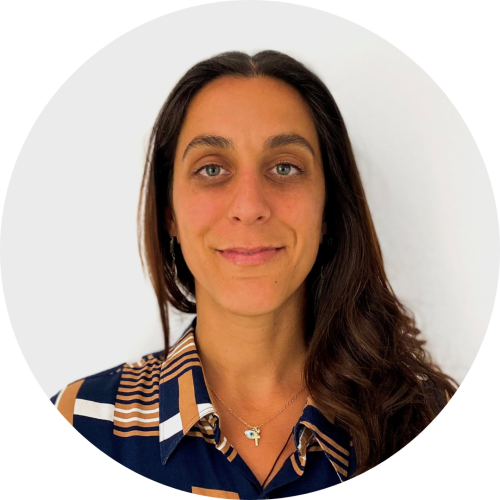
Niki Cesta is a conservation biologist, water explorer and community builder. Her rigorous underwater training and diverse work across environmental science have guided her to forge a deep connection to our natural world, particularly lake and ocean systems where she explores with curiosity and compassion. As the Co-Founder and Executive Director of TWP Foundation, Niki fosters a safe and immersive space to teach communities about waste education, nature reconnection and conservation-based solutions.
The Wasteland Plan Foundation is a Toronto-based, environmental non-profit organization that offers outdoor events, eco-trips and environmental campaigns which foster waste education, nature reconnection and conservation-based solutions that generate measurable, positive and equitable socio-environmental impact. To date, TWP has collected nearly 18,000 lbs of waste over 122+ cleanups across 13 countries and has introduced an accessibility statement to invite marginalized communities to engage in the immersive learning experience. TWP is female scientist-led, LGBTQ2S+ and BIPOC-founded by a pair who reside in a low-income neighbourhood. Co-founders Niki and Savannah began to map out TWP innovation project ideas in early 2022 with the goal to introduce a food composting pilot project at their low-income apartment by 2025. Under the mentorship program, Niki would like to further develop this composting pilot project as compost disposal is not available at their residence/in their neighbourhood. This composting pilot project would take the form of a subscription-style system whereby TWP would pick up compost bins on a weekly basis from residents who subscribe. Compost would be tended to at a nearby plot and sold locally. Composting is significant in climate change adaptation; when food waste breaks down in landfills, it releases methane, a greenhouse gas that has a global warming potential 23 times greater than carbon dioxide. In contrast, composting organic waste creates nutrient-rich soil which becomes a carbon sink for harmful GHGs. Projections show that composting organic waste instead of landfilling can reduce more than 50% of carbon dioxide-equivalent emissions; this is an estimated total of 2.1 gigatons of emissions reduced between 2020 and 2050. TWP aims to be a part of this change on a community level!
For most of 2021/2022, Niki and Savannah would walk their full compost bin to their nearby park green bin in order to separate and dispose of their household waste. As such they started to research if there was any accessible and affordable compost solutions in their low-income neighbourhood…nothing. As such, they began to create a project/system that could work on a community-level and later become scaled. As a permaculturist and landscape designer, Savannah is always looking for creative ways to measure our offset and reintegrate healthy soil into our landscapes. As a conservationist, Niki then considerded circling back the final product, the nutrient-rich soil to the ‘compost subscribers’ as incentive to keep planting beautiful vegetable gardens in their local community garden!
Nikis commitment to creating a better and more sustainable planet became actionable after she developed a deeper understanding of the waste crisis through a combination of academia and adventure. After completing her master’s in environmental science with a specialization in conservation and biodiversity, Niki spent 5 years living barefoot out of a 50L backpack, traveling through tropical and subtropical climates for marine conservation work. Living minimally and paying off her school debt with an invisible wage taught her to find sheer joy and commitment to the natural spaces around her. Most notably, Nikis experience working as a Marine Station Manager in the Galapagos Islands in 2018 is what planted the seed that later bloomed into The Wasteland Plan Foundation. Here, Niki worked on a biodiverse set of islands over one thousand kilometers off of mainland Ecuador and still, plastics prevailed in heaps along the pristine shorelines. Niki later went on to work on Little Cayman Island where gyres washed up tonnes of waste daily from the surrounding islands. It was here where she began to organize frequent waste cleanups and was met with help and community encouragement by an incredible group of women. Today, as a trained scuba divemaster and sailor, Niki has the opportunity to observe both the beauty and the anthropogenic impact of waste pollution and overconsumption on many different water bodies. As she learns and evolves in her work each day, her commitment to creating a better and more sustainable planet continues to grow.
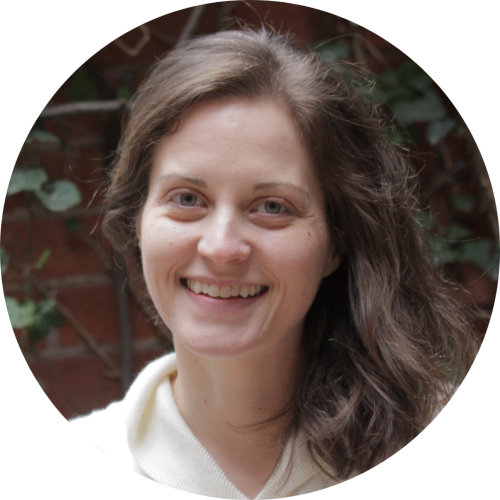
As an activist and community builder, Amy supports people across all stages of their climate action journey to experience more ease and joy in doing the work the world needs. For 8 years, Amy worked at the national non-profit WWF-Canada, leading the award-winning Living Planet @ Work program. In this work, she supported thousands of people across Canada to take action for nature and fundraise for conservation. She’s facilitated dozens of speaking events, workshops and open conversation spaces. In 2018, Amy co-founded the Toronto-based climate action group Carbon Conversations TO, which offers judgement-free spaces for individuals to explore their relationship with climate change and effectively cope with climate distress. Currently, Amy works as the founder of her coaching practice Amy Castator Coaching, where she supports individuals and groups as they navigate their journey of embedding climate action into their personal, work and community efforts. She works with her clients to find more ease and joy in doing work the world needs.
Carbon Conversations TO (CCTO) is a volunteer-led, grassroots group that offers facilitated learning opportunities to empower and equip individuals to make lifestyle changes, build community and take collective action to effectively cope with climate distress. Climate distress is a widespread issue that affects well-being across generations. Despite our commitment to healing the planet, unresolved emotions can prevent us from making lifestyle changes, advocating for systemic change and having important climate conversations with others. CCTO’s mission is to normalize climate action. The group facilitates courageous conversations ranging from individual workshops to in-depth multi-session programs. Through their programming, CCTO provides a safe and supportive space that brings concerned citizens together to express their climate-related emotions and learn about tangible steps to contribute to a healthier city and planet. Our organization operates based on the belief that finding hope and empowerment are the keys to rebuilding our connections with ourselves, each other and the Earth. They’re the keys to help us develop inner resilience, where we can look at adversity head-on, and say yes to taking action anyway. We are here to make climate grief and distress spaces more accessible, so that people don’t have to feel alone in navigating these challenging times.
Here is a story from our co-founder, Brianna Aspinall, who came up with the idea of bringing Carbon Conversations to Toronto: “The beginnings of Carbon Conversations TO started from love, care, and a realization that I was not living in line with my values. There was also fear and anxiety, feelings that were hard to share and process. My partner Erick and I watched a documentary about climate change and while it was a mix of ‘doom and gloom’ and hope, the story weighed heavily on both of us and almost paralyzed my partner into deep sadness. We realized we both needed to process and accept the truth about climate change while finding our unique way to become part of the solution. Through research and conversations with friends we learned that many others were also struggling to find a space to connect to their feelings about climate change. I went searching for a solution. I looked for proven models and found Carbon Conversations in the UK. I then met my fellow co-founders Amy Castator and Tara Wilkie. We gathered a team together to put the program into action in Toronto.” Brianna Aspinall, Co-founder, Carbon Conversations TO
I believe substantial climate progress will only happen when we deepen our relationships to ourselves, each other and the Earth. I believe when we’re able to be present to our inner fears and worries and meet them with compassion, we find new possibilities. I believe that when we understand we’re not alone in feeling pain for our world, we can support each other more openly and readily. I believe when we connect to the Earth, we remind ourselves of the complex beauty it has, and what we’re standing up for. All of this is what motivates me to act.

Priya is an engineering and climate scientist with more than six years of experience in the public and private sectors. Her experience focuses on using environmental datasets to gain valuable environmental insights. She recently completed a Master’s degree at the University of Toronto, where she learned about the health impacts of air pollution exposure in urban areas. Priya has worked with municipal governments to model the change in air pollution during the COVID-19 pandemic. She is deeply passionate about creating sustainable, equitable urban environments, and she wants to use satellite remote sensing data to develop models that can be used to create healthier communities.
Priya’s project is called Earth Analytics. This project is highly focused on creating data-driven insights on how cities should be built. This project will be an online platform where urban planners can view data on air pollution, green space, and overall livability within a city. This project aims to create urban spaces that are better suited for health and well-being. This could be more green space, more bike lanes, few highways, etc. The impact this project will have in reducing climate change is an overall reduction in air pollution by incorporating green space and reducing sources of air pollution.
I was inspired to create this idea after learning about the power of satellite remote-sensing data in graduate school. My graduate school research was focused on remote sensing data to model nitrogen dioxide, which is a pollutant that is emitted through combustion-related activities.
I think that we as a wealthy, western nation, have a responsibility to ensure that everyone around the world has access to a safe, sustainable, equitable community. I’m motivated by the news we hear about ecological destruction and the numerous, negative health impacts created by poorly designed communities.
Find out more from the Earthbound newsletter.
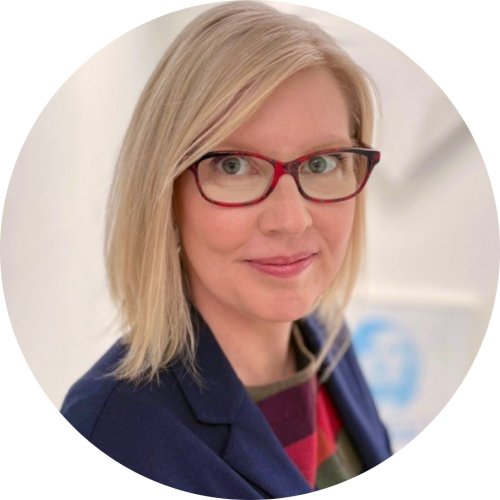
Julia is a climate champion who wants to inspire people and provide balance to the climate narrative by sharing solutions and stories of positive change – with a focus on the impactful actions we can all take right now. For 15 years, she was involved with a number of climate groups in Toronto, participating in actions and running awareness and advocacy initiatives. She has also engaged extensively as a citizen in the ongoing development of her city’s net-zero strategy, TransformTO. Her past community building activity includes serving as editor of her local newsletter for 10 years and helping to establish the neighbourhood’s community association. Julia now volunteers as a communications lead for the Pocket Change Project, her neighbourhood’s net-zero group, bringing her past 24 years of experience in marketing, communications, and fundraising for charities to her role. She greatly enjoys being part of this committed and talented team of neighbours, all passionate about helping their community to reach net zero. She serves on the leadership team for her Women4Climate project.
Toronto Home Retrofits is a non-profit organization launching in 2023 that has grown out of a proven retrofit coordination model piloted by the Pocket Change Project in east Toronto. Fundamental to the model’s success is the community-based support homeowners receive from trusted neighbours and the robust, step-wise plan they follow, alongside expert advice and connections to neighbours doing retrofits too. This approach overcomes significant barriers that make retrofits daunting for most people, allowing them to undertake sustainable home improvements with greater ease and confidence, tailored to their financial and other circumstances, in less time, and with a much lower learning curve than they would have otherwise. Building on the success of this model, Toronto Home Retrofits will work alongside partner community organizations in offering similar retrofit coordination services in their neighbourhoods. By mid-2025, the project goal is to recruit and support retrofitting homeowners in three to four diverse Toronto neighbourhoods, achieving average greenhouse gas reductions of at least 50% (3 tonnes) per year per home, in alignment with Toronto’s 2030 net-zero targets. By continuing to scale up this model, we seek to rapidly and equitably increase the pace of home retrofits across Toronto; retrofitting all of our 421,000 single family homes in the longer term would have the enormous impact of reducing our city’s emissions by one million tonnes, or more, a year.
For the last few years, Julia has had a real desire to convert her years of passion and effort fighting climate change into practical, impactful action in her own community, and the opportunity to join the Pocket Change Project and Toronto Home Retrofits came at the right time. Digging more into the very serious impact single-family homes have on greenhouse emissions has been eye opening for her. Most of us think of our homes as safe, cozy refugees; little do we realize they are also major polluters, emitting methane, CO2 and other harmful greenhouse gases, and in Toronto they contribute 18% of our city’s overall emissions. She is determined to dedicate whatever abilities she has to this project, which offers an innovative solution to the difficult challenges involved in retrofitting half a million Toronto homes quickly.
My motivation and commitment took a sharp upwards turn in 2009 when I heard a radio documentary about the political/military implications of runaway climate change for 2050 scenarios and beyond. I had not understood as deeply before the extent of the deaths, mass migrations, violence and other devastation that was at stake, and where those in the majority world, who would suffer the most, would be the least to blame. It was a major turning point in my life, to the extent that I am now abandoning previous career plans for a new course. I also have children in my family who mean a lot to me.
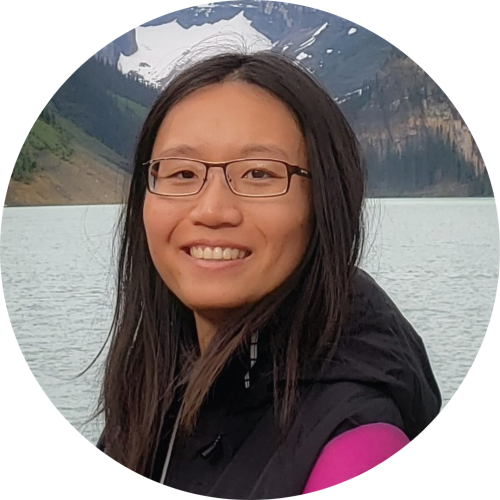
Having worked as a marine biologist, divemaster, and educator around the world, Lisa is extremely passionate about ocean conservation and education. While diving in some of the most pristine reefs in the world, she found marine debris to be a common denominator and disproportionately impact impoverished communities. Her experience inspired her to start Oceanic Impact focusing on having positive impacts on the ocean and society by empowering communities to take action. She has many years of international, interdisciplinary, and intercultural experience in marine biology, conservation, fisheries, aquaculture, and education. She has a Bachelor of Science in Biology and Neuroscience from McGill University and a Master of Marine Management degree from Dalhousie University. She also has a tremendous amount of experience with communications, education, outreach, and project and budget management.
Oceanic Impact is a social enterprise that was founded upon having a positive impact on our waterways. We focus on marine debris reduction and elimination through education, outreach, and technological development to empower local communities to take action. Our educational outreach programs have reached hundreds of individuals and stakeholders from 22 countries. Our Marine Way project is an eBay for the waterways and our DebrisMine project is a gamification geocaching platform for the waterways. They both seek to redefine the marine debris supply chain by attaching a monetary value to garbage and turning them into treasures. In turn, we hope to create cleaner shorelines, minimize the environmental impact of marine debris, and provide alternative income to communities to empower and incentivize them to continue to keep our shorelines pristine. We help to tackle the climate change issue by streamlining the waste diversion process by maximizing the return, reuse, and repurpose of marine debris while reducing labour and increasing the efficiency of the currently labour-intensive recycling process. Our effort would then translates into reducing emissions through the decrease in the need for virgin plastics and an increase in the reuse of marine debris in our local economy.
In 2018, I quit my teaching jobs and brought a one-way ticket to Southeast Asia for a backpacking trip. A week later, I remembered standing on this bridge on a remote island of Malaysia, on my right were all the fancy water bungalows for the tourists and on my left were little shacks for the locals. Tourism has caused a huge plastic problem on this remote island. Without any waste infrastructures, the locals were forced to burn all their trash while living with health consequences. Since that day, I started taking photos of litter on land and underwater around the world and posting them on social media. Some of my friends started telling me to save “garbage” for them as they would have other uses for them. Since then I have been inspired to discover different waste diversion opportunities while finding a way to develop low-cost equitable and accessible solutions to address the waste management issue.
As a marine biologist, I have seen coral bleaching firsthand; I have stood at the face of glaciers while locals told me that the face was several kilometres behind me a few years ago; I have lived through multiple once-in-a-century storms and listened to the heartbreaking stories of fishers, aquaculture, agriculture, and dairy farmers losing their entire livelihood due to climate change. My personal experience and the stories of others motivate me to keep finding innovative solutions toward a more sustainable future.
Find out more on the Oceanic Impact website.
Visit the Oceanic Impact Facebook page.
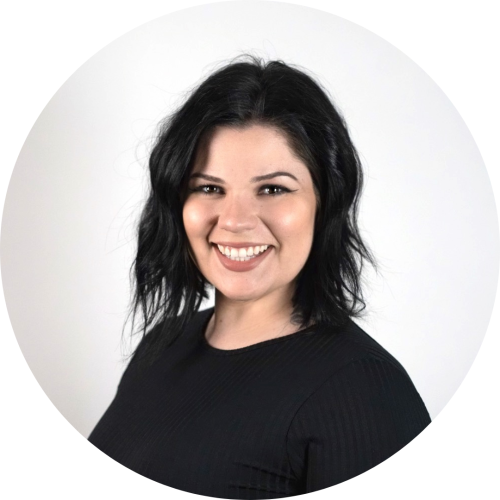
Natalie Duncan is a co-founder and the CEO of Bug Mars, precision agriculture for urban insect farms. She is a former small-scale cricket farmer with a background in environmental monitoring, materials science, data collection, sustainable and ethical practices as well as design and fabrication experience. She is a community builder who leads large scale art projects, makerspaces, and volunteer art fundraisers with the consistent goal of developing and maintaining community.
Cities are positioned to provide testbeds and infrastructure for circular innovation; maximising access to sustainable foods, improving supply chains, reducing organic waste and offering new opportunities for employment through urban and peri-urban farming. Cities can provide new policies, investments in new technologies, and transparency and awareness to build robust relationships between various working groups. By 2050 68 per cent of the world population will be living in cities. Food production requires a shift from rural areas to urban ones to meet a growing demand and provide direct access to nutritious food, reducing food insecurity while also reducing the transportation and supply chain disturbances and contributing to a sustainable and circular economy. Vertical, urban farms producing fresh produce and using less land are becoming more popular but they have yet to address the demand for sustainable and less-processed proteins. We will need to produce 70 per cent more protein to meet the growing demand for 2050. Furthermore vertical farms require heat to maintain temperature year round. Bug Mars’ initiative is to circularly produce nutritious alternative proteins in abundance by moving alternative protein production to urban areas to reduce travel while reusing waste heat from buildings/data centres to off-set GHGs and prepare cities for urbanization.
Bug Mars was founded in early 2021, during a global pandemic that highlighted environmental, supply chain and food security fragility. Nat Duncan, our CEO, was farming her own crickets as her concerns for food security and climate change increased. During that process she realized that scaling was not possible without 24 hour surveillance of the insect colonies. It was through this realization that Bug Mars was formed. Her expertise in environmental control and monitoring, sustainable and ethical practices, materials science, disaster preparedness and fascination for bugs has led Bug Mars to its current position as a truly unique, and innovative solution for a circular, alternative protein option in urban areas.
I would often playfully say, “starvation is a pretty motivating factor.” However, as urbanization and population growth increases, and crops are heavily impacted by climate change, my playful tone has shifted to one of unwavering sincerity. The near future of farming needs to be urban and circular. I am committed to helping shape a city that ensures resilient and equitable access to resources, local foods, and employment, while reducing waste and GHGs. Bug Mars understands the necessity of a sustainable future through the implementation of a circular economy, today.
Find out more on the Bug Mars website.
Follow the Bug Mars LinkedIn page.
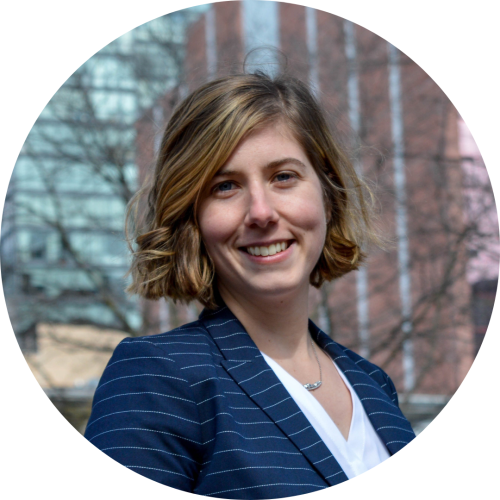
Cara wants to change the way we approach gardening and cut flowers. She is the CEO
and Founder of Seedy Farm a low waste startup sells sustainably-grown garden plants
and local cut flowers to combat harmful growing practices in the gardening and cut
flower industries. Cara has been a Neighbourhood Climate Action Champion with the
City of Toronto and she ran on an environmental platform during the 2022 Ontario election. Cara wants to raise awareness of the issues within these industries so that Canadians are well positioned to make informed decisions for their green spaces and flower purchases.
Gardening is a popular hobby for more than half of Canadians; however, most
gardening centres sell plants grown using environmentally damaging practices such as the use of peat moss (which releases carbon dioxide when harvested), the use of chemicals (which are released in the environment and on the food we eat), and the creation of a demand for new (often non-recyclable) plastic pots. Seedy Farm provides gardeners with sustainable plant choices by selling sustainably grown plants in re-used containers. Seedy Farm supports waste diversion efforts by growing plants in recycled pots donated by gardeners, who are encouraged to return the pots so they can be reused. Seedy Farm also sells sustainably grown local cut flowers to combat the international cut flower market which dominates Canada and has high emissions and environmentally damaging practices.
When shopping in gardening centres Cara grew frustrated with the lack of transparency with environmentally damaging practices such as the use of peat moss, fertilisers, and a demand for new (often non-recyclable) plastic pots. She founded Seedy Farm to provide sustainable plant and flower choices and spread awareness of environmentally damaging practices in these industries.
As a parent, Cara wants to ensure that we take the collective steps to combat Climate Change which will benefit us now and for generations to come.
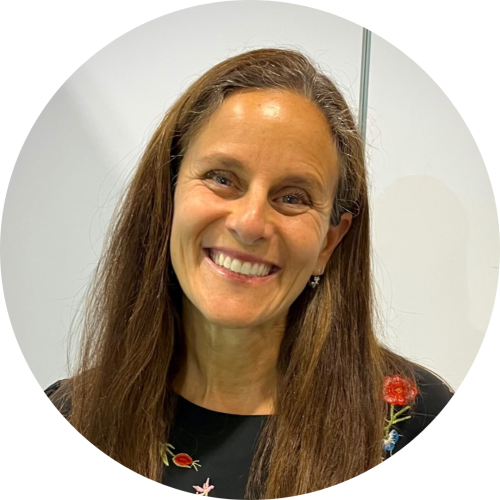
My journey with stormwater management and permeable paving started over 10 years ago. My background in education was a definite benefit as most of my time was spent educating decision makers about the benefits and applications of permeable paving surfaces. Things have definitely progressed, although not as quickly as hoped, and we now distribute a “Made in Ontario” permeable paving grid throughout the province.
#Wheredoesyourraingo Poster/Essay Contest will help bring awareness to the issues surrounding stormwater management to students, the next generation of our leaders. Leveraging one of the key calendar dates, such as Earth Day, a simple contest will be run for middle school/high school students focusing on the importance of green infrastructure and LID technologies as a way to manage stormwater run off “where it lands”. The winner will receive a small prize, but most importantly, will receive a permeable chess/checker board with life-size pieces for their school yard/community centre. The hope is that the students will involve and engage their families and then everyone in the community can observe the effectiveness of the permeable surface.
Effective stormwater management using LID/Green infrastructure and especially permeable paving has been used for 4 decades throughout Europe. Permeable surfaces are mandated to be used in lieu of conventional surfaces. Change is hard, but my work has been focused on trying to get our leaders to embrace the ways of our European neighbours. I started working with the German parent company 10 years ago and we are now manufacturing their cold weather resilient permeable paving grids in Ontario, from locally sourced recycled plastics, to support the North American market. I feel that this step can really put Ontario on the map as a leader in the Green infrastructure world and that as a leader, we have to lead by example. Educating the next generation of designers, engineers, leaders and decision makers is the next logical step. Using the student’s creativity, and hopefully with municipal support to share this project and the winning posters, we will be successful in increasing the awareness on effective measures that everyone can use to do their part.
I know that change can be hard but permeable paving is something that can actually help on so many different levels. It can help with flooding. It can help with the heat island effect. It can help reduce the polluted run off from entering our precious Great Lakes. It is affordable, effective and efficient. Leaving the world a better place for my children and grand children and having them be proud of my efforts is my biggest motivation. Realizing everyone can make a difference!
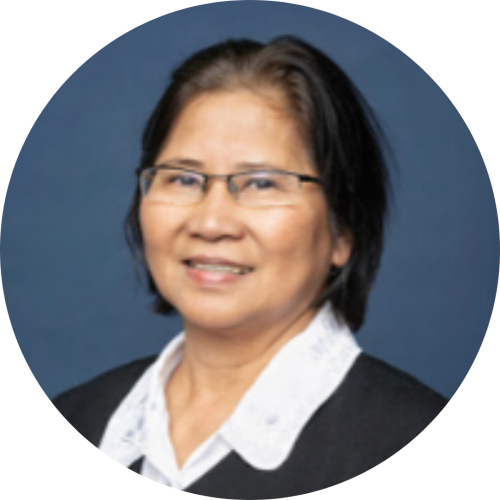
Angie Buado is a committed community leader at Bathurst Finch Hub since 2012. She advocates and organizes projects/activities that engage residents, lessen their isolation and gets them involved in improving and developing the community. As the founding member/coordinator of Friends of Earl Bales, Angie has created partnership and hosted annual park cleans up, multicultural music/dance performances and climate action change initiatives at Earl Bales Park. In 2017, Angie was one of 15 recipients of the Community Award Canada 150 Award in York Centre, an event in connection with 150 Years Celebration of Canada. Angie is a Local Champion and an alumni of network of grassroots leaders that work together on collective goals/strategies across neighborhoods to effect change. Inspired by this initiative, Angie started Bathurst-Finch Women’s Group to provide an empowering and inclusive space for the diverse women of the neighbourhood where they can find friendship, receive peer support, learn and discuss and find solutions to issues that they care about.
The goal of my project is to inspire, encourage and engage the residents of Bathurst-Finch (Westminster Branson) in reducing the amount of their textile waste going into the landfill. The project will host 2 virtual workshops and in-person activities in May 2023 that will educate residents and build their knowledge and skills in reducing textile waste.
Workshops about why reducing textile waste matters and how each resident can reduce their textile waste footprints
Training in clothing repair, alterations, repurposing and sewing projects
Participating in clothing donation drive or clothing swap event
Pop-up clothing repair by repairers from an established sewing repair hub
Through a combination of mentoring, training and networking opportunities, I wish to avail of the resources and support under the mentorship programme to grow and transition my project into a Sewing Repair Hub in the next 2-3 years.
Since 2019, I have the opportunity of involving myself with various climate change initiatives either as grant applicant/recipient or attendees in various climate change workshops.
When North York cluster re-opened their Climate Action Fund (CAF) in 2022, I applied immediately using Bathurst-Finch Women’s Group, the group I started in 2018. For project theme, I thought of reducing textile waste initiatives with the intention of reaching out to Scadding and Delta sewing hub coordinators.
I am a passionate and caring person and I care enough that due to human’s (including myself) uncaring and irresponsible actions in the past, environmental crisis is happening now worldwide. We each have a role in mitigating the current climate crisis. As an individual, the changes I make in reducing waste at home will make an impact to members of my family, my friends and neighbours. As a community leader, the projects I am/will continue to get involved with will continue to raise awareness, educate, encourage and engage the residents to reduce waste at their homes and in the community.
Women4ClimateTO mentors are professionals from the public and private sector with expertise in a variety of different fields including climate action, business, finance, marketing and communications.
